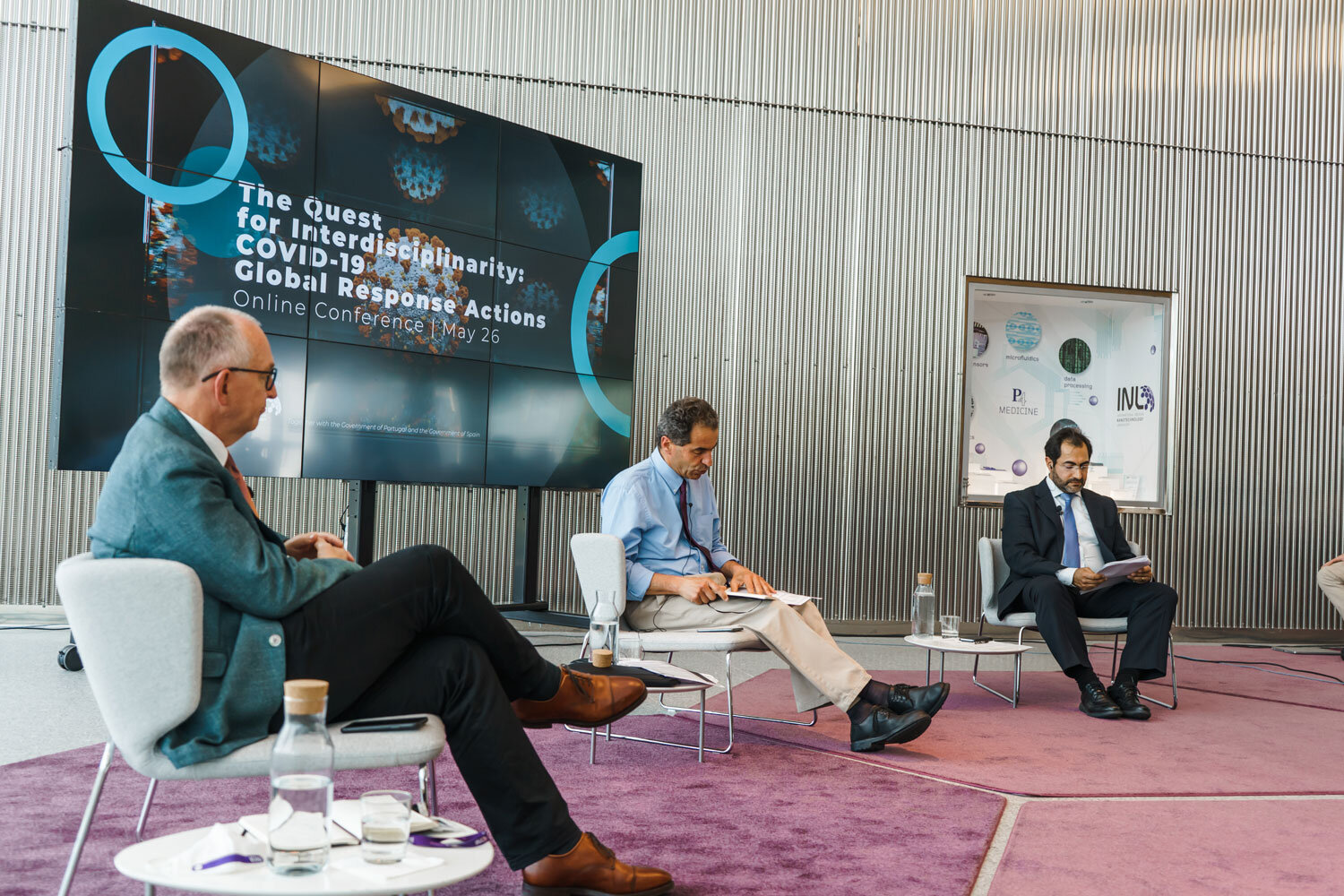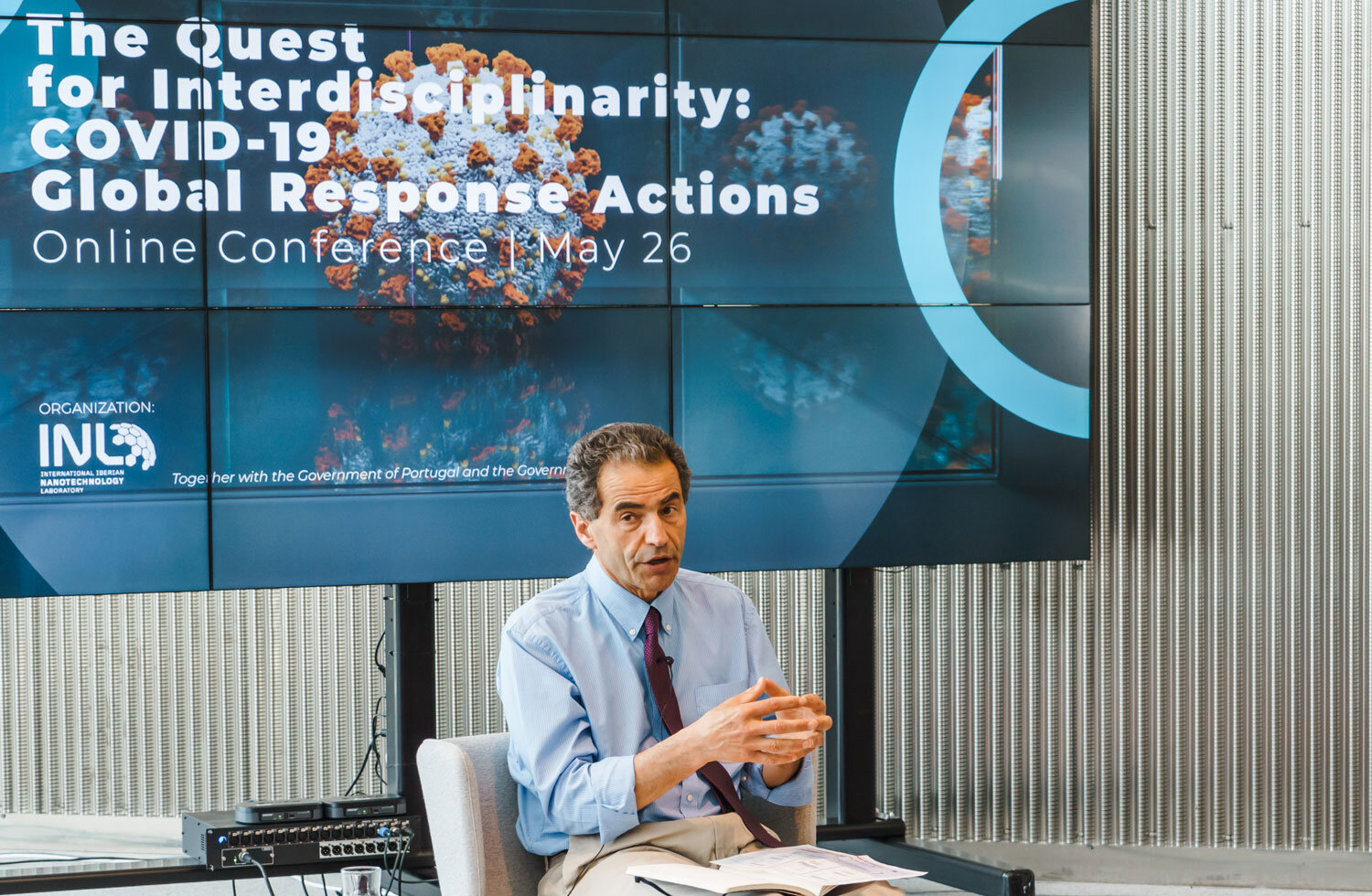INL points the way to scientific cooperation in fighting COVID-19
Portugal and Spain want to join efforts in the global response to the COVID-19 pandemic and one of the answers could be to use nanotechnology to detect infections by the new coronavirus more quickly, said the Iberian science ministers on May 26th during the online conference “The Quest for Interdisciplinarity”.
In this conference held at the INL - International Iberian Nanotechnology Laboratory, in Braga, transmitted over the Internet, the Portuguese Minister of Science and Higher Education, Manuel Heitor, stated that the two countries are "ready and can contribute with solutions" both in the diagnosis, therapies, and vaccines.
Manuel Heitor pointed out INL as one of the front lines of this collaboration, while his Spanish counterpart in Science and Innovation, Pedro Duque, said that this laboratory should start working with the Catalan Institute of Nanotechnology to develop sensors capable of detecting COVID-19.
"We still lack the technology to have a quick method of detecting whether someone has the virus or not. The tests we currently have still depend on very complex solutions," he said, reiterating that Portugal and Spain have already learned that "they are better together" and that scientific collaboration between the two countries is expected to expand further in the field of medicine.
We invest in Science
Manuel Heitor considered that in the last 20 years, investment in science in Europe was practically stagnant and that the pandemic came to show that "it is necessary to invest and we all could see what science can achieve".
Now is the time for activism by the scientific community to "better communicate" its capabilities, as people are more open to listening and expect solutions from science for what has most affected and still affects their lives.
"We live in a risk society, there is no zero risk and scientists have to show it," he added.
The Portuguese official also stated that with the pandemic, a "unique opportunity" was presented for private foundations, governments, and companies, entities with very different decision-making processes, to work together in the global response to COVID-19.
“Scientific collaboration is the key to the future. It was already and will be even more”, as demonstrated by the current situation
that the world is going through due to COVID-19. This was the conclusion that Lars Montelius, Director General of INL, withdrew from this online conference.
But the future is not just about the collaboration between institutions that are dedicated to scientific research, it is also about cooperation with the rest of society, because “scientists don't do things alone”, they need professionals from other areas ".
In the end, Lars Montelius stressed that the INL itself already has scientific collaboration in its DNA. In addition to being a research centre that emerges from the initiative of two countries, it currently brings together more than 400 researchers from 40 nationalities. "We need to learn from these experiences to be prepared for the next pandemic or global challenge because it will certainly exist", warned the director-general of INL, reminding that science takes time and has no immediate solutions, but above all, it has the role to create foundations for the future, which must be drawn up in cooperation.
+ [You can watch the full conference online on our Youtube Channel: https://bit.ly/covidconference]



